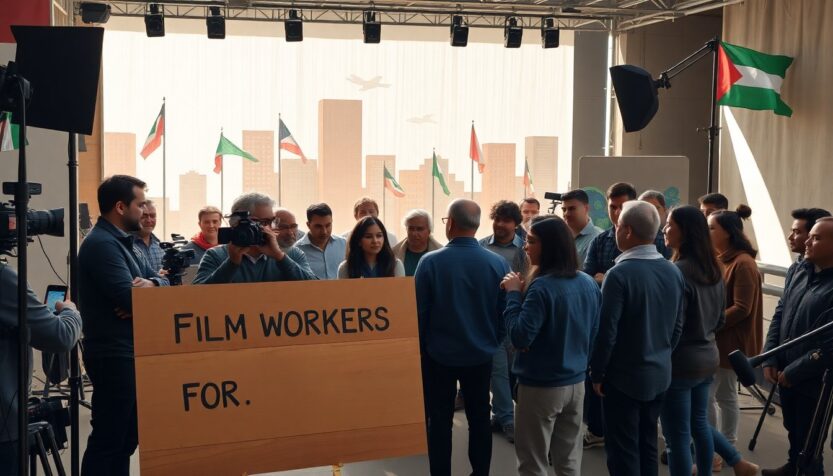On Monday, Film Workers for Palestine launched a significant pledge that has captured the attention of the global film community. Over 1,200 prominent actors and filmmakers have signed the document, which emphasizes a commitment to ethical filmmaking that prioritizes human rights. The pledge specifically calls out complicity in violence against Palestinians.
Why the Pledge Matters
The pledge, initially shared with The Guardian, articulates, “As film workers, we believe we must meet our ethical obligation to do no harm.” This statement extends beyond film production; it emphasizes the responsibility to amplify voices and advocate for justice. Notable signees, including Ava DuVernay and Mark Ruffalo, are urging their peers to reconsider collaborations with Israeli film institutions perceived as complicit in human rights violations.
These film professionals recognize the transformative power of cinema. They assert that, in a critical moment when governments may enable violence, the film industry must act responsibly. The pledge aligns with the sentiments of Palestinian filmmakers who have long called for an end to the silence surrounding their oppression, serving as a rallying cry for the industry to take a stand against injustice.
Historical Context and Inspiration
This movement draws inspiration from the historical Filmmakers United Against Apartheid, founded in 1987, which sought to prevent American films from screening in apartheid South Africa. This movement serves as a powerful reminder of the film industry’s history of opposing oppressive regimes. The pledge reflects a renewed commitment to activism within the industry.
The pledge makes a clear refusal to engage with institutions that contribute to violence, emphasizing a focus on institutional complicity rather than targeting individuals. This distinction is crucial as it highlights the fight against systems of oppression. The FAQ section of the pledge reinforces this intent, marking a step towards greater accountability within the film sector.
Responses and Reactions
Responses to the pledge have been mixed. The Israeli Producers Association has expressed concern, arguing that boycotting creators undermines efforts to showcase diverse narratives and promote peace. They contend that collaboration is essential for understanding and resolving conflicts. However, the signatories believe that by refusing to work with complicit institutions, they are fostering a more profound dialogue about justice and representation.
This ongoing conversation signals that the pledge is more than a mere statement; it represents a call to action for the film community and beyond. It encourages individuals to reflect on their roles in promoting social justice through their work. Whether one is part of the industry or simply a cinema enthusiast, this is a pivotal moment that warrants attention. The implications of this pledge raise important questions about the future of collaboration and accountability in the film industry.

